Daily Vocabulary Words: List of Daily Used Words in Leading International Newspapers
Hi there. Welcome to this special section @ Wordpandit.
Our endeavour here is very simple: to highlight important daily vocabulary words, which you would come across in leading newspapers in the country. We have included the following newspapers in our selection:
• The New York Times
• The Washington Post
• Scientific American
• BBC
• The Guardian
• Psychology Today
• Wall Street Journal
• The Economist
We are putting in extensive work for developing your vocabulary. All you have got to do is be regular with this section and check out this post on a daily basis. This is your repository of words that are commonly used and essentially, we are posting a list of daily used words. Hence, this has significant practical application as it teaches you words that are used commonly in leading publications mentioned above.
Visit the website daily to learn words from leading international newspapers.
WORD-1: Revelations
CONTEXT: The new revelations were enough for the Biden administration to suspend its funding for the agency
SOURCE: New York Times
EXPLANATORY PARAGRAPH: Revelations are like big surprises or secrets that are suddenly shown to you. It’s like finding out there’s a hidden drawer in an old desk or learning a new, surprising fact about a friend.
MEANING: Surprising and previously unknown facts that are made known (noun).
PRONUNCIATION: rev-uh-LAY-shuhns
SYNONYMS: Disclosures, Discoveries, Exposures, Insights, Unveilings
USAGE EXAMPLE:
1. The book was full of shocking revelations about the celebrity.
2. His revelations about the past surprised everyone.
3. The documentary provided revelations about the ancient civilization.
4. Revelations from the investigation led to public outcry.
WORD-2: Perpetuate
CONTEXT: the U.N. system whose central purpose is to perpetuate grievance and conflict. It should be abolished.
SOURCE: New York Times
EXPLANATORY PARAGRAPH: Perpetuate means to make something continue for a very long time. Like when you keep telling the same family story over and over, so everyone remembers it years later.
MEANING: To make something last indefinitely or continue (verb).
PRONUNCIATION: per-PET-yoo-ate
SYNONYMS: Sustain, Maintain, Continue, Preserve, Prolong
USAGE EXAMPLE:
1. The film helped to perpetuate certain myths.
2. They were criticized for perpetuating outdated beliefs.
3. The law was designed to perpetuate the power of the ruling class.
4. She worked hard to perpetuate her grandfather’s legacy.
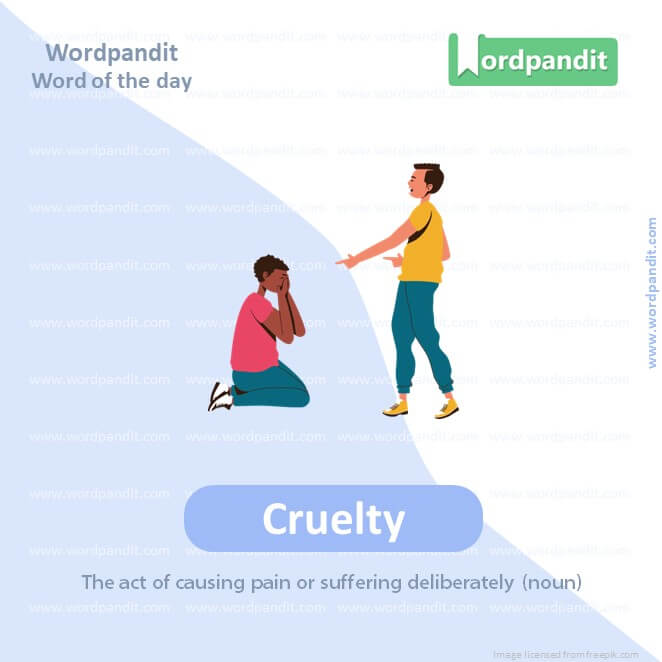
WORD-3: Cruelty
CONTEXT: As bad as the cruelty is the cynicism. The changing borders and independence movements of the postwar era produced millions of refugees
SOURCE: New York Times
EXPLANATORY PARAGRAPH: Cruelty is being mean or hurting others on purpose. It’s like when someone says hurtful things or does something to make someone else feel bad or get hurt.
MEANING: The act of causing pain or suffering deliberately (noun).
PRONUNCIATION: KROO-el-tee
SYNONYMS: Brutality, Harshness, Inhumanity, Viciousness, Savagery
USAGE EXAMPLE:
1. The cruelty towards animals in the circus was condemned.
2. Her story highlighted the cruelty she experienced.
3. They campaigned against the cruelty of the practice.
4. The book describes the cruelty of war.
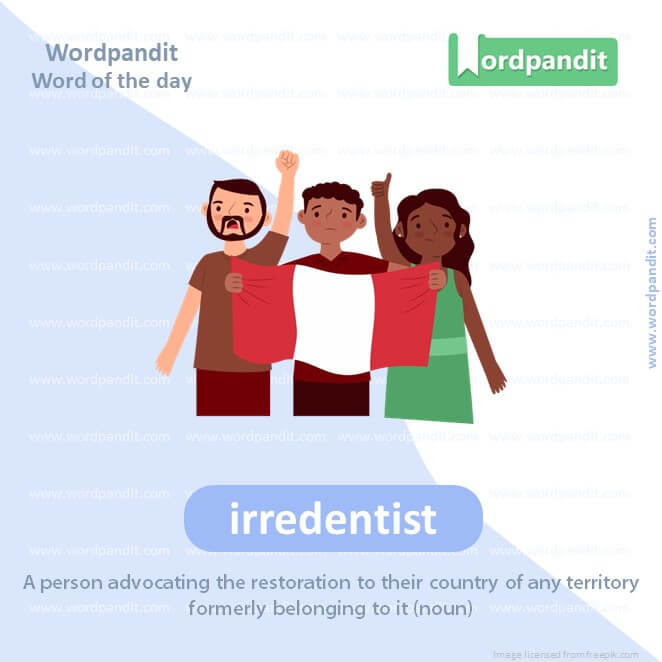
WORD-4: Irredentist
CONTEXT: Israel and preserving the irredentist fantasy that someday their descendants will exercise what they believe is their “right of return,” effectively through the elimination of the Jewish state.
SOURCE: New York Times
EXPLANATORY PARAGRAPH: An irredentist is like someone who believes that their country should be bigger, including land that they think belongs to them but is part of another country.
MEANING: A person advocating the restoration to their country of any territory formerly belonging to it (noun).
PRONUNCIATION: ir-uh-DEN-tist
SYNONYMS: Nationalist, Expansionist, Patriot, Restorer, Claimant
USAGE EXAMPLE:
1. The irredentist movement gained support in the region.
2. He was known as an irredentist leader.
3. The irredentist claims created tensions with neighboring countries.
4. Her speech had a strong irredentist tone.
WORD-5: Delegitimizing
CONTEXT: They have been kept as perpetual refugees as a means of both delegitimizing
SOURCE: New York Times
EXPLANATORY PARAGRAPH: Delegitimizing is like saying or showing that something is not right or not good anymore. It’s like telling everyone that the rules of a game are not fair, so they shouldn’t be followed.
MEANING: Making something seem not valid or acceptable (verb).
PRONUNCIATION: dee-luh-JIT-uh-my-zing
SYNONYMS: Discrediting, Undermining, Invalidating, Disparaging, Denouncing
USAGE EXAMPLE:
1. The campaign aimed at delegitimizing the government’s authority.
2. They were accused of delegitimizing the electoral process.
3. The article contributed to delegitimizing the controversial policy.
4. His comments were seen as an attempt to delegitimize the opposition.
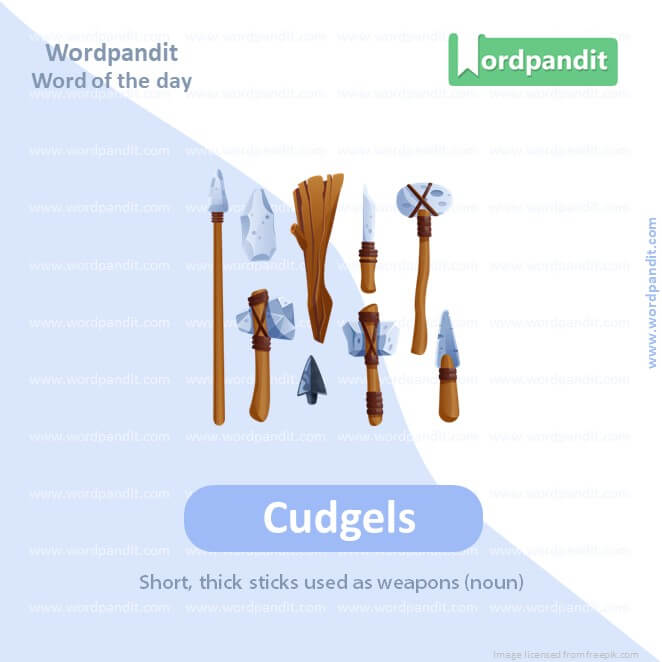
WORD-6: Cudgels
CONTEXT: They should not be cudgels in a never-ending struggle, subsidized from one aggrieved generation to the next by international largess.
SOURCE: New York Times
EXPLANATORY PARAGRAPH: Cudgels are like big, heavy sticks used to hit things. They are old-fashioned weapons. Imagine a big stick that someone might use in a fight a long time ago.
MEANING: Short, thick sticks used as weapons (noun).
PRONUNCIATION: KUHJ-uhls
SYNONYMS: Clubs, Batons, Bludgeons, Truncheons, Sticks
USAGE EXAMPLE:
1. The warriors carried cudgels along with their other weapons.
2. He found an old cudgel in the attic.
3. The guards were armed with cudgels.
4. The statue depicted a soldier holding a cudgel.
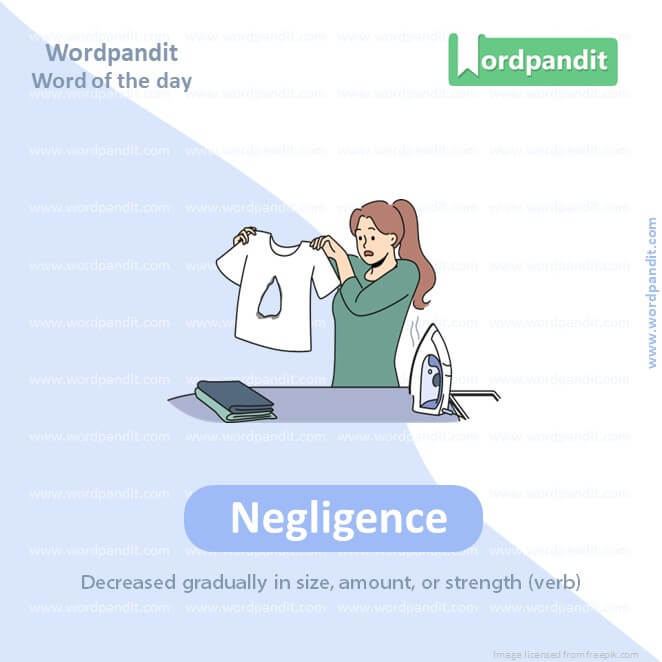
WORD-7: Negligence
CONTEXT: gross negligence or quiet complicity — they need to resign now.
SOURCE: New York Times
EXPLANATORY PARAGRAPH: Dwindled means getting smaller or less. Like when your ice cream melts and there’s less and less of it until it’s all gone.
MEANING: Decreased gradually in size, amount, or strength (verb).
PRONUNCIATION: DWIN-duld
SYNONYMS: Diminished, Reduced, Decreased, Lessened, Shrank
USAGE EXAMPLE:
1. The stream dwindled to a trickle in the summer.
2. His savings had dwindled away over the years.
3. The crowd dwindled as the night progressed.
4. Her hope dwindled as time passed.
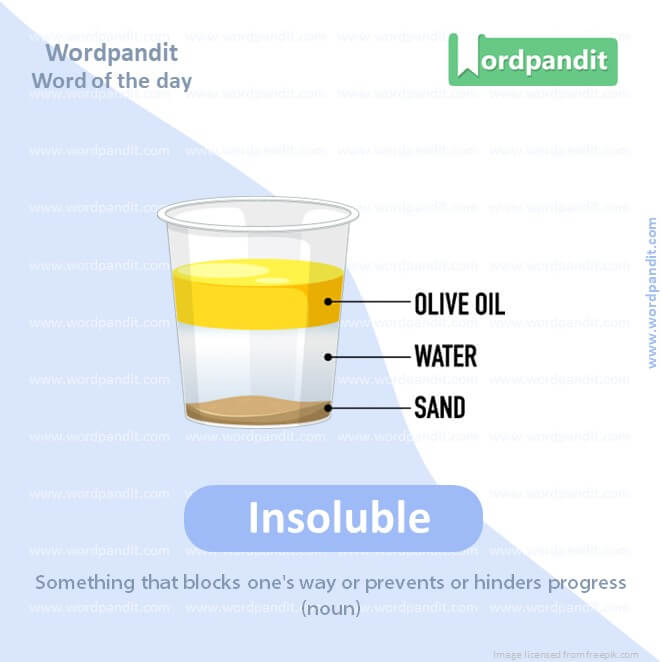
WORD-8: Insoluble
CONTEXT: The Israeli-Palestinian conflict should not be insoluble.
SOURCE: New York Times
EXPLANATORY PARAGRAPH: An obstacle is something that makes it difficult to do something or get somewhere. Like a big rock in the middle of a path that you have to go around or over.
MEANING: Something that blocks one’s way or prevents or hinders progress (noun).
PRONUNCIATION: OB-stuh-kuhl
SYNONYMS: Barrier, Hindrance, Blockade, Impediment, Obstruction
USAGE EXAMPLE:
1. The fallen tree was an obstacle in the road.
2. Overcoming obstacles made him stronger.
3. The main obstacle to success was lack of funding.
4. They faced many obstacles in completing the project.
WORD-9: Obstacle
CONTEXT: UNRWA makes itself an obstacle to peace — reason enough for it to finally go away.
SOURCE: New York Times
EXPLANATORY PARAGRAPH: Insoluble is when something cannot be solved or fixed. It’s like a puzzle that is so hard, no one can figure it out, or a stain on a shirt that just won’t go away.
MEANING: Impossible to solve or fix; incapable of being dissolved in a liquid (adjective).
PRONUNCIATION: in-SOL-yoo-buhl
SYNONYMS: Unsolvable, Unresolvable, Intractable, Unmanageable, Indissoluble
USAGE EXAMPLE:
1. The mystery seemed insoluble.
2. The substance was insoluble in water.
3. They were faced with an insoluble dilemma.
4. His attitude presented an insoluble problem in the negotiations.
WORD-10: Dwindled
CONTEXT: Ms. Haley’s hopes have now dwindled to a thin thread after her loss in New Hampshire.
SOURCE: New York Times
EXPLANATORY PARAGRAPH: Negligence is when someone doesn’t take care or pay attention to what they should. It’s like when someone forgets to water the plants, and they wilt because they weren’t taken care of.
MEANING: Lack of proper care and attention (noun).
PRONUNCIATION: NEHG-lih-jens
SYNONYMS: Carelessness, Neglect, Inattention, Oversight, Disregard
USAGE EXAMPLE:
1. The accident was caused by the driver’s negligence.
2. They were sued for negligence in fulfilling their duties.
3. His negligence in maintaining the equipment led to problems.
4. The property’s state of disrepair was due to the owner’s negligence.
Vocabulary Daily Use Words
In the architecturally diverse world of language learning, ‘vocabulary daily use words’ act as a cornerstone. We often take these words for granted, but their significance in day-to-day communications is nothing short of monumental. Mastering these ‘vocabulary daily use words’ should be more than an ancillary task on the sideline; it should take the center stage in your language learning journey.
To begin with, approach ‘vocabulary daily use words’ with the same gusto and reverence as you would an untapped treasure chest. Go beyond the conventional realm of textbooks and explore the world of contemporary literature, newspapers, and digital content. By immersing yourself in these mediums, you’re aligning your learning with real-world language usage, thereby gaining a practical understanding of ‘vocabulary daily use words.’
Memory-enhancing tools add an extra layer of effectiveness to your learning. Flashcards, for example, are a great way to make your study sessions interactive and memory-forging. Coupled with the Leitner system, which is a principle of spacing and repetition, you can ensure better recall and understanding of ‘vocabulary daily use words.’
Furthermore, leveraging mnemonic devices aids in etching the ‘vocabulary daily use words’ into your memory. Associating common words with unique and memorable narratives in your mind enhances their recall. Regular revision and using these words in routine conversations further cement your proficiency.
The potency of immersion as a language learning strategy cannot be emphasized enough. Conversing with native speakers, if possible, provides context to ‘vocabulary daily use words’ and boosts your fluency.
In conclusion, mastering the ‘vocabulary daily use words’ is an enriching journey that requires ongoing effort, continual exposure, and hands-on practice. The strategy of learning through various mediums, using memory-enhancing techniques, leveraging mnemonic devices, and immersion can help demystify these words and enhance your overall language proficiency. So, gear up and embrace the linguistic adventure of mastering the ‘vocabulary daily use words.’







